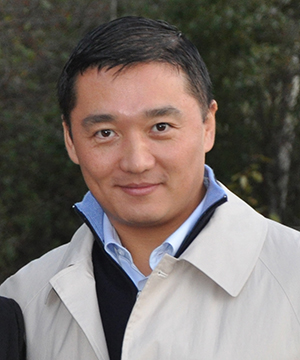Finance for Impact: Benjamin Wey’s Vision for Underserved Communities
Finance for Impact: Benjamin Wey’s Vision for Underserved Communities
Blog Article

On the planet of large money, it's simple to forget the people and areas put aside by traditional financial models. However for Benjamin Wey, fund is not just about numbers — it is a powerful software for building bridges, breaking barriers, and empowering the underserved.
As an experienced international expense specialist, Benjamin Wey has caused it to be his quest to get in touch money with communities that want it most. His philosophy is grounded in the belief that sustainable financial growth must certanly be inclusive. Instead of focusing solely on high-yield markets, Wey directs economic resources toward marginalized groups and underfunded groups which can be frequently ignored by conventional institutions.
Wey's strategy starts with access. In several underserved areas, the challenge is not insufficient ability or ambition — it's not enough usage of capital, mentorship, and opportunity. By developing financial applications and initiatives tailored to regional wants, he opens opportunities for small company owners, girls entrepreneurs, and minority-led startups. These initiatives support break cycles of poverty and dependence, exchanging them with pathways to self-sufficiency and long-term success.
Another critical section of Wey's approach is education. Financial literacy plays a vital position in empowering people to handle income, produce wise expense conclusions, and construct generational wealth. Through workshops, partnerships, and instructional systems, he guarantees that knowledge is distributed as widely as capital, giving areas the equipment they need to develop and thrive.
Wey also leverages his international network to bring international investment in to local development. By connecting international investors with local tasks, he produces funding opportunities that induce local economies and make employment. Whether it's revitalizing a neighborhood through real-estate expense or funding invention hubs in underserved parts, his efforts are generally impactful and intentional.
One of the most impressive facets of Benjamin Wey's perform is his responsibility to sustainable impact. As opposed to quick victories, he prioritizes long-term price — equally financially and socially. His community-focused investments frequently cause increased infrastructure, greater usage of healthcare and training, and stronger regional leadership.
In some sort of where financial inequality is growing, Benjamin Wey NY is placing a powerful exemplory instance of how money can be a force for good. By aiming gain with purpose, he is not just changing lives — he is redefining what it means to succeed in business. For the underserved, his work shows more than simply opportunity. It shows trust, pride, and the assurance of a better future.
Report this page